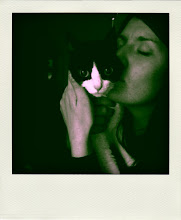A dear friend of mine recently gave me a copy of Jean-Anthelme Brillat-Savarin's The Physiology of Taste. The book is a strange and brilliant collection of musings, philosophies, recipes and experiences that was first published in Paris in 1825. I dunno - I thought maybe you'd like to read some? And I thought you might like some film stills from Jaromil Jires's extraordinary film from 1970, Valerie and Her Week of Wonders. One has nothing to do with the other, except in my head. Sorry friends, that's about all I've got to give at the moment.
25. On Exhaustion
119. Introduction
By exhaustion we mean a state of weakness, languor, and prostration brought about by antecedent circumstances, and impending the exercise of the vital functions. If we except the exhaustion caused by deprivation of food, we may count three distinct types:
Exhaustion caused by muscular fatigue, exhaustion caused by mental effort, and exhaustion caused by amorous excess.
A remedy common to the three types of exhaustion is the immediate cessation of the acts responsible for this condition, which, if not actually a disease, is at least very close to one.
120. Treatment
After this indispensable introduction, we find gastronomy at hand, ever ready and resourceful.
To the man worn out by the protracted exercise of his muscular strength, it offers good soup, generous wines, cooked meat, and sleep.
To the scholar who has allowed himself to be carried away by the charms of his subject, it offers exercise in the open air to refresh his brain, baths to loosen his aching fibres, poultry, green vegetables, and rest....
20. On the Influence of Diet on Rest, Sleep, and Dreams
94. Introduction
Let a man rest or sleep or dream; he still remains subject to the laws of nourishment, and does not leave the empire of gastronomy.
Theory and experience are united in proving that the quality and quantity of food consumed exerts a powerful influence on work, rest, sleep, and dreams.
95. Effect of Diet on Work
The ill-nourished man cannot stand up for long to the strain of continuous toil; his body sweats all over, his strength soon abandons him, and for him rest is nothing but the impossibility of action.
If his work is of the mental variety, his ideas lack vigour and precision; reflection fails to knit them together, and judgement to analyse them; his brain is soon worn out with vain endeavour, and he falls asleep on the field of battle.
I have always thought that the famous suppers at Auteuil, like those at the houses of Rambouillet and Soissons, did a great deal of good to the authors of the time of Louis XIV; and the cynic Geoffroy (if the fact were true) could not have been far wrong when he taunted the poets of the late eighteenth century with the sugar-and-water he believed to be their favourite drink.
Following up this theory, I examined the works of certain authors known to have lived in poverty and distress; and sure enough I found no force in them, except when they were obviously stirred by consciousness of their woes, or an envy which was often none too well disguised.
He, on the contrary, who eats well, and repairs his losses with prudence and discretion, is capable of performing almost incredible feats...
...Brown mentions an English Admiralty clerk who, having accidentally lost certain documents which he alone was qualified to work on, spent fifty-two hours on end rewriting them. He could never have survived such an enormous loss of energy without a special diet: first on water, then light food, then wine, then beef tea and finally opium...
98. Conclusion
The man who has reflected on his physical existence and conducts it according to the principles we are laying down, prepares his rest, his sleep, and his dreams carefully and wisely.
He shares out his work so as to avoid exhaustion; he lightens it by varying it carefully; and he refreshes his faculties by short intervals of rest, which relieve them without destroying that continuity which is sometimes essential.
If, in the day-time, he needs a longer rest, he never yields to is except in the sitting position; he spurns sleep, unless it comes upon him irresistibly, and above all he avoids making a habit of it.
When night brings the hour of diurnal rest, he retires to a well-ventilated room, takes care not to surround himself with curtains which would force him to breathe the same air a hundred times over, and avoids closing the shutters, so that whenever his eyes open, they may be soothed by whatever light lingers on.
He stretches himself out on a bed slightly raised at the head; his pillow is stuffed with horsehair; his night-cap is made of linen; his chest is not weighed down with blankets, but he is careful to keep his feet warmly covered.
He has eaten wisely, though refusing neither good nor excellent cheer; he has drunk the best wines, and albeit cautiously, even the most famous. At dessert his talk has been gallant rather than political, and he has made more madrigals than epigrams; he has drunk a cup of coffee, if it agrees with his constitution, and accepted a few moments later a spoonful of excellent liqueur, simply to sweeten his mouth. In all things he has shown himself a charming guest, a distinguished connoisseur; and yet he has only barely exceeded the limits of necessity.
Under these circumstances he goes to bed content with himself and the rest of the world; his eyes close; he passes through the twilight zone, and then falls fast asleep for a few hours.
Soon nature has levied her tribute, and his losses are repaired by assimilation. Then sweet dreams provide him with a mysterious existence; he sees those he loves, resumes his favourite occupations, and is wafted to those places where he has known happiness.
At last, he feels sleep gradually dispelled, and returns to social life with no reason to regret wasted time, because even in sleep he has enjoyed activity without fatigue and pleasure unalloyed.
*These excerpts are taken from Anne Drayton's 1970 translation from the French, published by Penguin.












I've been thinking of you lately, and hoping that you're finding ways to treat yourself and smile wondrously if/as you move into crunch time with the thesis. Gorgeous film stills! I think Brillat-Savarin needs an injection of humour in his writing, though :P
ReplyDelete